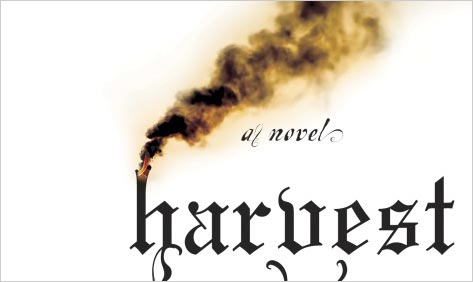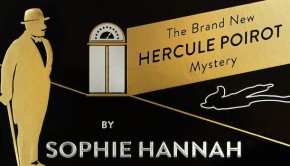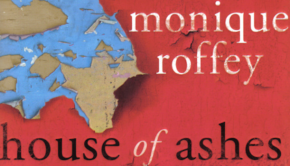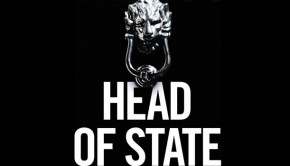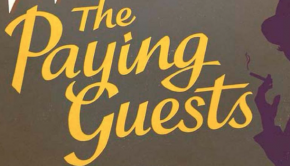Harvest by Jim Crace
As late summer steals in and the final pearls of barley are gleaned, a village comes under threat. A trio of outsiders – two men and a dangerously magnetic woman – arrives on the woodland borders and puts up a make-shift camp. That same night, the local manor house is set on fire. Over the course of seven days, Walter Thirsk sees his hamlet unmade: the harvest blackened by smoke and fear, the new arrivals cruelly punished, and his neighbours held captive on suspicion of witchcraft. (Picador)
Peter Kemp, The Sunday Times
“Harvest is as finely written as it is tautly structured. Pungently flavoured with archaic words, its language is exhilaratingly exact, sometimes poetic and sometimes stark. Magnificently resurrecting a pivotal moment in our history about which it is deeply knowledgeable, this simultaneously elegiac and unillusioned novel is an achievement worthy to stand alongside those of Crace’s great fictional influence, William Golding. “
Rob Nixon, The New York Times
“Here and throughout Harvest, the action feels at once historically remote and uncannily contemporary. Crace recounts the unsettling of the countryside through enclosure, that fencing off and private seizure of resources its champions euphemistically called “improvements.” But this historical plot echoes with the disparities of our own age — the new enclosures brought about by merciless globalization and the widening chasm between the mega-wealthy and the dispossessed. Crace is too subtle a writer to make such partial analogies explicit, but this hint of currency gives his novel a keener edge.“
Malcolm Forbes, Literary Review
“As ever, Crace is unflinching in his portrayal of barren landscapes and tarnished hopes. When the elements don’t scorch or freeze the victims of the pillory then ravenous pigs will attack them. But Harvest isn’t all desolate and Crace knows exactly when to filter chinks of light through his black clouds. His lyrical prose renders the sunnier rustic interludes supremely evocative … Crace authenticates his history by sprinkling his narrative with sparkling mica-like archaisms and quaint dialectal variations – ruddocks and dunnocks pick at grain, damsons are scrumped, mushrooms taste reasty.“
Justin Cartwright, The Spectator
“I found myself completely drawn into this only half-rational world, with its near-heathen beliefs — there is no church — and its closeness to the land. Without inventing some cod Olde English, Crace achieves a cadence of speech which sounds and feels as if it is absolutely authentic.“
Leo Robson, New Statesman
“Yet the spirit of play in Crace’s work serves as the cover for a spirit of elegy. Starting from scratch – inventing cultures, fabricating epigraphs – better enables him to communicate his message, usually about transition and impermanence. His novels depict, in prose of sometimes overpowering richness, the encroachment of progress on a stone-age community, the Judean desert (Quarantine – which portrayed 40 days in the adulthood of Jesus) and a post-industrial city. Harvest takes place in a village, nameless rather than unnamed, that is being dragged, kicking and screaming and, as things turn ugly, fistswinging, into the late 18th century, or Crace’s tailored version of it.“
Jake Kerridge, The Daily Express
“Crace’s greatest achievement is to convey the elemental pleasure of their lifestyle to readers. It was not, according to Walter, an easy life but he makes it sound like an exhilarating one: “The countryside is argumentative. It wants to pick a fight with you. It wants to dish out scars and bruises. It wants to give you roughened palms and gritty eyes… This was precisely what I most liked about this village life, the way we had to press our cheeks and chests against a living, fickle world.”“
David L. Ulin, The Los Angeles Times
“As with Crace’s other novels, Harvest is deftly written, in language — formal, slightly archaic even — that reflects the setting it describes. It’s also tightly plotted; less than a week passes from the moment smoke is sighted until the book’s fateful outcome, and yet once underway, we have the sense that everything is inevitable.“
Angus Clarke, The Times
“Jim Crace’s setting is closely imagined in a detailed, credible, tactile way that makes it seem real — while, of course, it is entirely imaginary. The lack of specificity sets his story free to resonate beyond itself. So, for example, Mr Quill is not merely mapping the village — perhaps he is an avatar of the writer, charting his imagined creation, enclosing it in words.“
Nicholas Clee, The Observer
“This is a novel with plenty of incident but little drama, creating its considerable power, instead, through Walter’s mesmerising narrative. At the end, it may not be too fanciful to conflate Walter and Crace, as the narrator steps out of bounds and says farewell to a way of life.“
Justine Jordan, The Guardian
“Crace brings his signature combination of atmosphere and exactitude to every aspect of this far‑off world, from landscape and ploughing to domestic interiors and the taste of magic mushrooms (a “reasty mix of horse’s hoofs, burnt hair and candle wax”). The prose is extraordinary: rich yet measured, estranged and familiar, both intimate and austere. The narrative, though, proceeds by odd fits and starts, tracking back and forwards in time as Walter, struggling to resolve the train of consequence, reconstructs past events and considers future possibilities, guesses at others’ motivations, resolves to act, hesitates, does not.“
Hephzibah Anderson, The Daily Mail
“There is a timelessness to the ways of these folk, and Crace suffuses his descriptions of their daily lives with the scents and sounds of the English countryside. It produces many lovely sentences – warm and earthy and untainted by sentimentality. “
AN Wilson, The Financial Times
“One of the most brilliant things about the plot of Harvest is that it is like an envelope gradually turning itself inside out. We seem to be reading about a tightly knit group of insiders (“the paltry fifty-eight”) being threatened by outsiders. But there is no such certainty. Our narrator, the honest, wistful Walter Thirsk, the clever peasant, is eventually turned loose in the world.“
Boyd Tonkin, The Independent
“As for Crace’s language, it would be otiose with this writer to note its blazing clarity of vision, its passionate microscopic observation and the untiring swing and spring of its rhythm. One could set whole paragraphs as almost-regular iambic verse. This may sound affected, but Crace’s excavations of English pastoral mode involve its prose –and poetry – as much as its beasts, its tackle and its tools.“
Adam Mars-Jones, London Review of Books
“Some things are rationed or unobtainable that it’s hard for modern people to imagine doing without. There isn’t a looking glass in the parish, ‘though no doubt there are some wives who have a secret sliver with which to horrify themselves and which they wisely do not seek to share.’ The nearest reflection is two days distant. ‘We close an eye and see no more than the side of the nose, or possibly some facial hair, the outer regions of a beard. We know our hands and knees but not our eyes and teeth.’ The past is imagined here in all its richness, or paucity, though neither alternative seems right. The richness of its paucity perhaps.“
Ian Thomson, Evening Standard
“Crace’s 11th novel is a glory to read, as the intensely poetic prose is brought to a burnished pitch throughout. Yet, ultimately, Harvest is disappointing; for all the fine writing, it has no through-narrative, little drive or grease. Instead it is magnificently, if mesmerisingly, static. Jim Crace will be missed all the same; no one else writes with such a strange, enchanted clarity.“
Philip Womack, The Daily Telegraph
“Crace has a great gift for clarity, his prose precise and heartfelt, achieving a timeless, polished quality. Which makes it all the more sadder that it feels as if he is straining towards some deeper truth, some epiphanic understanding. Harvest is the uber-metaphor: we have to sow because we fell from Eden.“
OMNISCORE:

